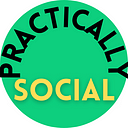Strengths Focus for Self Help
A strategy for addressing problems derived from severe mental health disorder treatment.
Our brain is naturally predisposed to solve problems. We live in a world filled with them. They often become quite personal, interpersonal, job-related, or relationship-based, and we feel powerless to overcome them.
Eckhart Tolle often equates the brain to an old-fashioned typewriter. It functions as a survival tool, constantly clicking and clacking away. Buddhists have referred to it as “mind,” which pervasively interferes with how we attach, focus, and obsess over our problems. This all happens in a way that can rob us of something as simple as our breath or as complicated as our happiness.
Our brains keep us alive. Unfortunately, they also have relentless ways of attempting to solve problems which, in some instances, may work themselves out. We tend to stress over minutiae, power, and comparisons.
Our brains weigh all of this against the experience of our past. The memories, conclusions, failures, and solutions. We tend to forget we can characterize our failures as “feedback” whenever we choose. Instead, we tell ourselves that our ego can’t handle the lessons and that we certainly don’t have to repeat them if we just get the mastery. That’s when the machine’s function…
